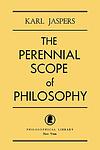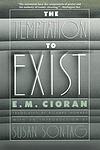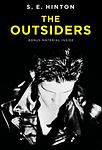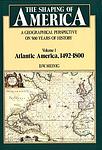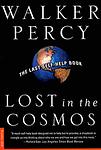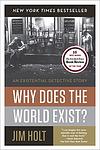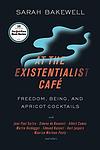The Greatest "Nonfiction, Existentialist" Books of All Time
Click to learn how this list is calculated.
This list represents a comprehensive and trusted collection of the greatest books. Developed through a specialized algorithm, it brings together 284 'best of' book lists to form a definitive guide to the world's most acclaimed books. For those interested in how these books are chosen, additional details can be found on the rankings page.
Genres
Existentialist literature is a genre that explores the meaning and purpose of human existence, often through the lens of individual experience and subjective perception. These books often delve into themes of freedom, choice, and responsibility, and may challenge traditional notions of morality and societal norms. Existentialist literature can be introspective and philosophical, and may offer readers a unique perspective on the human condition and the search for meaning in a complex and often chaotic world.
Countries
Date Range
Reading Statistics
Click the button below to see how many of these books you've read!
Download
If you're interested in downloading this list as a CSV file for use in a spreadsheet application, you can easily do so by clicking the button below. Please note that to ensure a manageable file size and faster download, the CSV will include details for only the first 500 books.
Download-
1. Thus Spake Zarathustra by Friedrich Nietzsche
This philosophical novel explores the idea of the Übermensch, or "Overman," a superior human being who has achieved self-mastery and created personal meaning in life. The protagonist, Zarathustra, descends from his solitary life in the mountains to share his wisdom with humanity. Through a series of speeches and encounters, he challenges traditional beliefs about good, evil, truth, and religion, and advocates for the transcendence of man into a higher form of existence. The book is noted for its critique of morality, its poetic and often cryptic language, and its exploration of complex philosophical concepts.
-
2. The Myth of Sisyphus by Albert Camus
This book is a philosophical essay that explores the concept of absurdity, and how individuals should respond to life's inherent meaninglessness. It posits that life is essentially absurd due to the conflict between our desire for understanding and the chaotic, indifferent universe. The author argues that the only proper response to this absurdity is to live life to its fullest, embracing and rebelling against the absurdity, rather than resorting to suicide or turning to religion or philosophy for false comfort. The story of Sisyphus, condemned to eternally roll a boulder up a hill only for it to roll back down, is used as a metaphor for the human condition.
-
3. Beyond Good and Evil by Friedrich Nietzsche
"Beyond Good and Evil" is a philosophical work that challenges the moral conventions of the time, arguing that concepts of good and evil are not absolute but are instead social constructs. The book delves into the nature of individual morality, asserting that it is driven by self-interest and the will to power. It also criticizes past philosophers for their unquestioning acceptance of religious and societal norms, and promotes the idea of the "overman" or "superman", a superior human who embraces his instincts and creates his own values.
-
4. Being and Time by Martin Heidegger
Being and Time is a seminal work that explores the concept of "being" through a detailed analysis of human existence. The book delves into existential and phenomenological thought, examining how humans relate to the world and their own existence. The author argues that people are always "being-in-the-world" and that understanding this fundamental state is crucial to comprehending the broader concept of being. The work also introduces the concept of "Dasein," a term used to describe the specific type of being that humans possess.
-
5. The Rebel by Albert Camus
"The Rebel" is a philosophical exploration of rebellion and revolution. It dissects the nature and origins of rebellion, arguing that it arises from a basic human refusal to accept injustice. The book delves into the many forms rebellion can take, from personal revolt to political revolution, and examines the consequences and ethics of each. The author also critically evaluates the rebellious attitudes of various historical figures and movements, highlighting the potential for rebellion to either affirm or destroy human dignity.
-
6. Fear and Trembling by Soren Kierkegaard
"Fear and Trembling" is a philosophical work that explores the concept of faith, drawing upon the biblical story of Abraham and his willingness to sacrifice his son Isaac. The author uses this story to delve into the paradox of faith, arguing that true faith requires a willingness to make personal sacrifices that may seem absurd or irrational to others. The book challenges conventional notions of morality and ethics, suggesting that faith may sometimes require actions that go beyond the bounds of societal norms.
-
7. Either Or by Soren Kierkegaard
"Either Or" is a philosophical work that explores the concept of existentialism through the lens of two contrasting life views: the aesthetic and the ethical. The aesthetic life is characterized by immediate pleasure and enjoyment, while the ethical life is defined by moral duty and responsibility. The book presents these two perspectives through the fictional letters of two characters, ultimately arguing for the superiority of the ethical life. However, it also suggests that a truly fulfilled life must find a balance between the two.
-
8. On the Heights of Despair by Emil Cioran
"On the Heights of Despair" is a philosophical exploration of the human condition, particularly focusing on themes such as existentialism, despair, and nihilism. The author delves into the idea of life as suffering and the inevitability of death, offering a bleak yet thought-provoking perspective on existence. The work is a profound contemplation of life's absurdity, loneliness, and the struggle to find meaning, presenting an introspective journey into the depths of despair and the heights of existential thought.
-
9. The Sickness Unto Death by Soren Kierkegaard
This philosophical work explores the concept of despair, which the author sees as a spiritual condition linked to the Christian concept of sin. The author delves into the human struggle to reconcile the self with the ideal self, a process he argues is only possible through a relationship with God. The book also discusses existential dread, self-awareness, and the nature of the human soul, offering a complex and thought-provoking examination of the human condition.
-
10. I and Thou by Martin Buber
This philosophical work explores the concept of relationships and the nature of dialogue. The author suggests that human life finds its meaningfulness in relationships, which he divides into two categories: "I-It" and "I-Thou". The "I-It" relationship is characterized by a detached and objective perspective, while the "I-Thou" relationship involves a deep sense of connection and mutual existence. The book argues that modern society, with its emphasis on individualism and materialism, often neglects the "I-Thou" relationship, leading to a loss of genuine human connection.
-
11. The Gay Science by Friedrich Nietzsche
The book in question is a philosophical work that delves into the author's ideas on morality, truth, and the nature of human existence. It is known for its poetic and aphoristic style, presenting a critique of contemporary culture and the Western intellectual tradition. The author introduces the concept of the "eternal recurrence" and famously proclaims the "death of God," challenging readers to confront the implications of a world devoid of divine authority and to embrace the potential for creating their own values. The work is a celebration of art, science, and the joyous wisdom that comes from living a life of intellectual inquiry and creative freedom.
-
12. Wittgenstein's Nephew by Thomas Bernhard
"Wittgenstein's Nephew" is a semi-autobiographical novel that explores the friendship between the narrator and his friend Paul, who is the nephew of the famous philosopher Ludwig Wittgenstein. The story takes place in Vienna and is set against the backdrop of the Austrian mental health system. The novel delves into themes of sanity, insanity, and the fine line that separates the two, while also offering a critique of Austrian society. It is a meditation on the nature of illness, both physical and mental, and the impact it has on personal relationships and one's perception of the world.
-
13. The Perennial Scope Of Philosophy by Karl Jaspers
The book in question explores the enduring nature of philosophical inquiry, examining how it transcends temporal and cultural boundaries to address fundamental questions of existence, knowledge, and ethics. The author argues that philosophy is not confined to any particular era or dogma but is a continuous pursuit of truth that evolves with human thought while remaining rooted in the quest for universal understanding. Through a critical examination of historical philosophical movements and their contributions to the ongoing dialogue, the work emphasizes the importance of philosophy in providing a framework for individuals to confront the mysteries of life and the universe, encouraging readers to engage in their own philosophical contemplation.
-
14. Existentialism And Humanism by Jean Paul Sartre
The book is a philosophical work that presents the core tenets of existentialist thought, emphasizing the individual's unique position as a self-determining agent responsible for the authenticity of their choices and actions. It argues that human existence precedes essence, meaning that people first exist without predetermined purpose and must then define themselves through their decisions and commitments. The text also addresses the implications of this freedom, including the weight of responsibility it places on individuals and the consequent anxiety, as well as the absence of a universal moral code. It concludes with a discussion on the role of human solidarity and the ethical considerations that arise from our interconnectedness with others.
-
15. The Temptation To Exist by Emil Cioran
"The Temptation to Exist" is a philosophical work that explores the human condition and the inherent struggles of existence. The author delves into themes of nihilism, despair, and the search for meaning in a world filled with suffering. Through a series of thought-provoking essays, Cioran challenges traditional beliefs, questions the nature of reality, and reflects on the complexities of human existence, ultimately offering a bleak yet profound perspective on the human experience.
-
16. The Courage to Be by Paul Tillich
"The Courage to Be" is a philosophical work that explores the concept of courage in the face of existential threats and anxieties. The author argues that courage is not simply a bold act in the face of physical danger, but also the strength to affirm one's own being in spite of non-being, despair, and death. The book also discusses the role of God as the ultimate source of courage and suggests that embracing our existential anxieties can lead to self-affirmation and spiritual growth.
-
17. The Twilight of the Idols and The Antichrist by Friedrich Nietzsche
"The Twilight of the Idols and The Antichrist" is a philosophical work that critiques the moral and religious values of Western society. The author argues that these values, particularly those of Christianity, are not only false but harmful to society, as they suppress human instincts and hinder humanity's progress. He proposes a new moral system based on individual strength, intellectual honesty, and the affirmation of life, and criticizes the belief in an afterlife. The book is a radical critique of established religion and morality, and a call for a reevaluation of values.
-
18. Nuptials by Albert Camus
"Nuptials" is a lyrical essay collection that delves into the author's profound reflections on the Mediterranean landscape and the joy of living. Through vivid and evocative prose, the essays explore the author's sensory experiences and emotional responses to the sun, sea, and nature of Algiers and its surroundings. The work celebrates the physical beauty of the world, the intense pleasures of the body, and the connection between the individual and the natural environment, all while contemplating the themes of existence, happiness, and mortality. The author's meditations on the simple yet profound aspects of life offer a philosophical perspective on the human condition and the search for meaning within the splendor of the natural world.
-
19. The Outsider by Colin Wilson
"The Outsider" is a seminal work of existentialist thought that explores the psyche of individuals who stand on the fringes of society, those who feel a profound sense of alienation and disconnection from the world around them. The book delves into the lives and works of various historical figures, including artists, writers, and philosophers, to examine the role of the outsider in shaping human consciousness and culture. It discusses the outsider's struggle with self-identity and the search for meaning in an indifferent universe, ultimately seeking to understand the potential for transcendence and the ways in which these individuals can reconcile their existential angst with the demands of everyday life.
-
20. The Birth Of Tragedy by Friedrich Nietzsche
The book in question explores the origins and significance of ancient Greek tragedy. It presents a philosophical critique of the development of art, contrasting the Apollonian elements of structure, order, and beauty with the Dionysian aspects of chaos, passion, and instinct. The author argues that Greek tragedy arose from the synthesis of these two forces, embodying a balance that allowed for the expression of profound existential and metaphysical truths. As the work progresses, it delves into the decline of tragedy due to the influence of Socratic rationalism and the subsequent loss of a vital cultural force capable of confronting the inherent suffering of human existence. The text is both a work of aesthetic theory and a profound inquiry into the nature of human experience.
-
21. The Will To Power by Friedrich Nietzsche
The book in question is a posthumously published collection of notes and fragments that explores the author's ideas on the driving force of human ambition and achievement, which he terms as the "will to power." It delves into various subjects such as art, science, morality, and the nature of truth, offering a critique of traditional values and a reevaluation of existence. The work is a cornerstone of the author's philosophy, reflecting his critical stance on religion, metaphysics, and the prevailing moral systems of his time, while advocating for a reimagining of human potential and the creation of new values.
-
22. The Geographical History Of America by Gertrude Stein
"The Geographical History of America" is an experimental work that delves into the relationship between human consciousness and the external world, particularly focusing on the American landscape. The book challenges traditional narrative structures and explores the concept of identity through the lens of geography, history, and the author's unique philosophical musings. It is characterized by its repetitive and playful use of language, reflecting the author's avant-garde approach to literature and her desire to capture the essence of American culture and the human experience within it.
-
23. Lost in the Cosmos by Walker Percy
The book is a satirical self-help guide that explores the human condition and our place in the universe through a series of thought experiments, quizzes, and essays. It delves into topics such as existentialism, semiotics, philosophy, science, and religion, all with a humorous twist. The book challenges readers to examine their lives, their beliefs, and their perceptions of reality, ultimately suggesting that we are all a little lost in the cosmos.
-
24. Why Does The World Exist? An Existential Detective Story by Jim Holt
In "Why Does The World Exist? An Existential Detective Story," Jim Holt explores the question of why there is something rather than nothing. He interviews philosophers, scientists, and theologians to try to find an answer, delving into topics such as the nature of existence, the origins of the universe, and the meaning of life. Along the way, he examines various theories and arguments, from the Big Bang to the concept of God, in an attempt to uncover the ultimate explanation for the existence of the world.
-
25. At The Existentialist Café: Freedom, Being, And Apricot Cocktails by Sarah Bakewell
"At The Existentialist Café" is a non-fiction book that explores the lives and ideas of a group of philosophers known as the existentialists. The book takes readers on a journey through the cafes of Paris in the 1930s and 40s, where philosophers such as Jean-Paul Sartre, Simone de Beauvoir, and Maurice Merleau-Ponty would gather to discuss their ideas about freedom, being, and the meaning of life. Bakewell weaves together their personal stories, philosophical theories, and the historical context in which they lived, to create a compelling and accessible introduction to existentialism.
Reading Statistics
Click the button below to see how many of these books you've read!
Download
If you're interested in downloading this list as a CSV file for use in a spreadsheet application, you can easily do so by clicking the button below. Please note that to ensure a manageable file size and faster download, the CSV will include details for only the first 500 books.
Download











